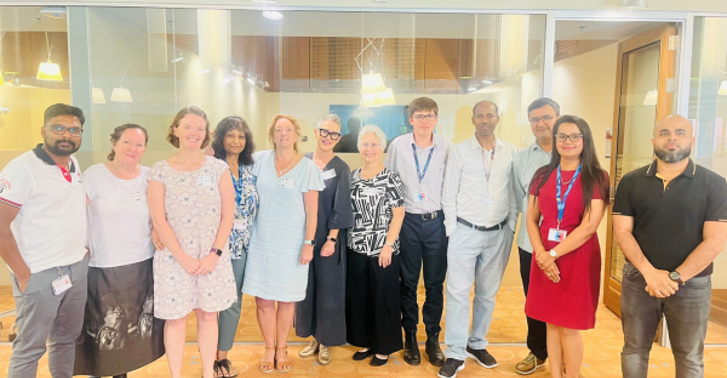Tumour Biology and Therapeutics Research
“Our research aims to develop better cancer treatments that effectively target cancer cells while protecting healthy ones.”
The Tumour Biology and Therapeutics Research Group has a focus on understanding how cancer forms and how it can be more effectively treated. We do this by studying how cells respond to DNA damage and how the body’s DNA damage response (DDR) system works to prevent cancer.
Many standard cancer treatments work by causing more DNA damage. This can lead to faults in the DDR system, allowing tumours to adapt and become treatment resistant – ultimately causing cancer recurrence.
Our research aims to exploit these weaknesses in DNA repair mechanisms to:
-
Enhance the effectiveness of existing therapies
-
Develop new treatment strategies for advanced cancers.
We use a multidisciplinary approach, including:
-
Cell and molecular biology
-
Proteomics
-
Systems biology
-
Mouse models
-
Preclinical studies using tumour cells and patient samples (from Mater Hospital Brisbane)
Our work has the potential to shape the future of cancer treatments – improving outcomes by killing cancer cells while also protecting healthy cells.
Group Leader

Group members
Professor Kum Kum Khanna is supported by group members and student researchers:
- Dr Rahul Srivastava
- Dr Behnam Rashidieh
- Stephen Miles
- Dr Prahlad Raninga
- Dr Murugan Kalimutho
- Mr Cameron Stewart
- Mr Haresh Sankar
- Ms Sivanandhini Sankarasubramanian




